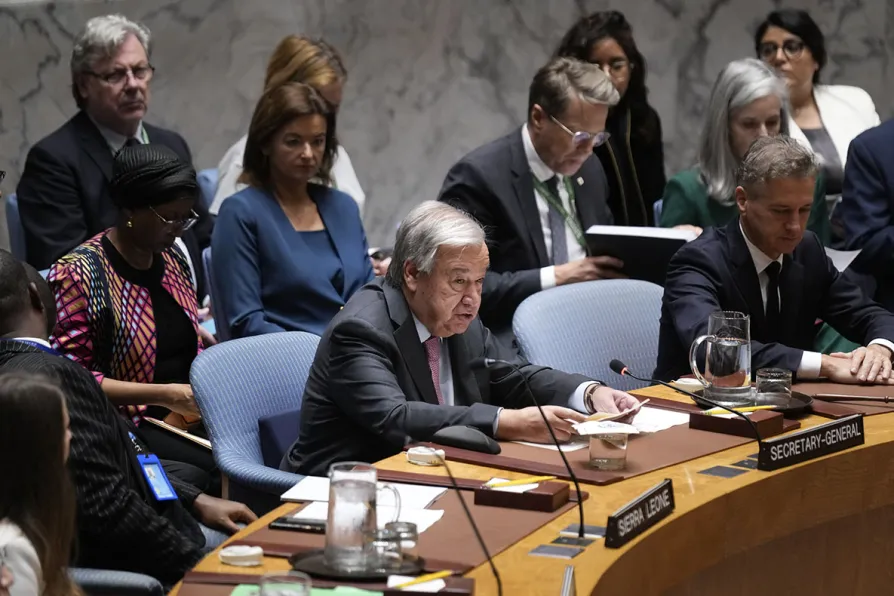UN Chief slams deeply divided Security Council

 United Nations Secretary-General Antonio Guterres speaks during a Security Council meeting at United Nations headquarters, September 25, 2024
United Nations Secretary-General Antonio Guterres speaks during a Security Council meeting at United Nations headquarters, September 25, 2024
UNITED Nations secretary-general Antonio Guterres has vented his frustration at the security council’s failure to end wars in Gaza, Ukraine, Sudan and beyond.
Addressing the 15-member council on Wednesday, he said: “Peace demands action. And peace demands leadership.
“Instead, we’re seeing deepening geopolitical divisions and mistrust.”
Similar stories

The colonial mindset behind the governance of the UN is the reason for its inertia when it comes to conflict resolution, argues ROGER McKENZIE – but can China’s Global Governance Initiative point in a new direction of global equality?













